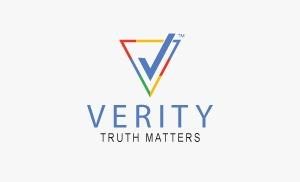
AWAKE Bias Rating Framework for Corporations
Introduction
The AWAKE Bias Rating framework aims to assess corporations in areas of governance, social responsibility, environmental impact, communication, and employee relations. This model is designed to be non-biased and strives for impartiality to provide a thorough understanding of a corporation's stance on essential topics.
Key Factors
We consider several key factors across multiple categories:
Governance & Ethical Conduct
- Financial Transparency: Evaluation of open sharing of financial data and earnings.
- Leadership Integrity: Assesses the moral and ethical standards executives uphold.
- Compliance and Legal Adherence: Measures adherence to laws and regulations.
Employee Welfare
- Training & Development: Gauges opportunities for employee growth and skill development.
- Work-Life Balance: Assesses policies designed to promote a balanced lifestyle for employees.
- Job Security: Measures the company's stability and future-proofing of jobs.
Environmental Sustainability
- Renewable Energy Use: Evaluation of usage of renewable energy in operations.
- Waste Management: Measures how effectively the corporation manages and disposes of waste.
- Biodiversity Conservation: Assesses contributions to conservation and wildlife protection.
Social Responsibility
- Local Community Support: Measures efforts to uplift local communities through initiatives and employment.
- Ethical Sourcing: Assesses sourcing practices and their impact on producers and the environment.
- Accessibility: Measures how inclusive products/services are (e.g., disability-friendly, economically accessible).
Transparency & Communication
- Stakeholder Communication: Evaluates frequency and transparency in communication with stakeholders.
- Crisis Management: Measures effectiveness in handling crises and communicating during such events.
- Whistleblower Protections: Assesses procedures to protect whistleblowers within the organization.
Triggers and Data Fields
To collect relevant information for these factors, we employ various triggers and data fields:
- Quarterly Financial Reports: For governance and ethical conduct evaluation.
- Employee Feedback Portals: To gauge employee welfare and workplace environment.
- Environmental Audits: For a comprehensive understanding of sustainability measures.
- Customer Surveys: To measure social responsibility from a user perspective.
- Official Communications: Press releases, media interviews, and public disclosures for assessing transparency.
Conclusion
The AWAKE Bias Rating for Corporations offers a holistic, non-biased overview of a corporation's activities, ethics, and impact. By considering a wide array of factors, this framework enables various stakeholders to better understand and assess the corporation's contributions and potential shortcomings beyond the scope of merely financial metrics.
The AWAKE Bias Rating aims to complement other frameworks like WOKE by focusing on different but equally important factors, ensuring that corporations are evaluated through a comprehensive lens.
Certainly! Merging the WOKE and AWAKE frameworks can provide a comprehensive and multi-dimensional assessment of corporations. The combined framework, tentatively called WOKE-AWAKE, would consider a broad spectrum of issues, from social justice to governance, while also noting political orientations where relevant.
WOKE-AWAKE Bias Rating Framework for Corporations
WOKE (Left-Center-Neutral)
We consider the following factors primarily geared toward social justice and equality:
- Diversity and Inclusion: Evaluate the company’s efforts in promoting a diverse workforce.
- Human Rights: Measures commitment to human rights in supply chains and business practices.
- Pay Equality: Assesses commitment to eliminating pay gaps based on gender, race, etc.
AWAKE (Right)
We consider these factors primarily related to corporate governance and responsibilities:
- Financial Transparency: Evaluation of open sharing of financial data and earnings.
- Leadership Integrity: Assesses the moral and ethical standards executives uphold.
- Compliance and Legal Adherence: Measures adherence to laws and regulations.
Neutral Factors (Center)
Common ground factors assessed by both WOKE and AWAKE:
- Environmental Sustainability: Renewable Energy Use, Waste Management, Biodiversity Conservation.
- Employee Welfare: Training & Development, Work-Life Balance, Job Security.
- Social Responsibility: Local Community Support, Ethical Sourcing, Accessibility.
- Transparency & Communication: Stakeholder Communication, Crisis Management, Whistleblower Protections.
Political Alignment Indicators
WOKE Alignment: Left-Center-Neutral based on WOKE factors.
AWAKE Alignment: Right based on AWAKE factors.
Triggers and Data Fields
To collect data for these factors, the following triggers and fields are employed:
- Quarterly and Annual Reports: For financial, governance, and sustainability metrics.
- Employee Surveys: To gauge workplace culture, diversity, and employee welfare.
- Social Media and Public Statements: To assess commitment to social justice causes.
- Community Feedback and Surveys: To evaluate social responsibility and local impact.
- Legal Records: For assessing compliance and ethical conduct.
- Environmental Audits: For a comprehensive understanding of sustainability measures.
Conclusion
The WOKE-AWAKE Bias Rating for Corporations offers a holistic, non-biased overview of a corporation's multifaceted contributions and potential shortcomings. This allows stakeholders to better assess a corporation's political leanings and ethical standing, without compromising on objectivity.
This framework combines the strengths of both WOKE and AWAKE models, aiming to provide a nuanced understanding of a corporation’s impact on both social and governance issues.